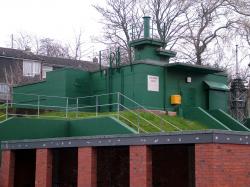Translate this Page
Franco-Prussian War
War Name : Franco-Prussian War
Date(s) : 15 July 1870 - 10 May 1871
Summary
After the 'Seven Week War', the Prussian premier, Count Otto von Bismarck's made a serious attempt to unite the independent southern German states into an alliance with Prussia against France. When he also tried to place a Hohenzollern prince (related to the Prussian royal house) on the Spanish throne, the French Emperor Napoleon III became increasingly alarmed. Talks broke down, and after Bismarck leaked a telegram about the discussions (the Ems Telegram' , suitably altered to cause insult to both sides, France declared war.
The French were hopelessly optimistic about their ability and readyness to wage war, and although planning an invasion of the German territories, Count Helmuth von Moltke's impecable planning and staff organisation had the Prussians well prepared and in fact it was them who grasped and held the offensive.
The French were repeatedly pushed back from the border towards Paris, briefly halting the Prussians at Gravelotte, but failing to capitalise and falling back once more. Finally one French army under Marshal Bazaine was bottled up in the fortress town of Metz, another under the direct control of the Emperor was completely defeated at Sedan and Paris was besieged.
With the Emperor in captivity, the capital declared the Third Republic and placed Leon Gambetta at it's head. Though some places, notably Belfort, continued to hold out, guerrilla actions threatened the German supply lines and Gambetta tied to continue the war from Tours, the cause was ultimately doomed. Paris capitulated in January 1871 and the Germans occupied the capital in March. The Treaty of Frankfurt which officially ended the war ceded the French provinces of Alsace and Lorraine to Germany (not to be recovered until the end of WW1) and an indemnity of 5 billion francs levied on France.






